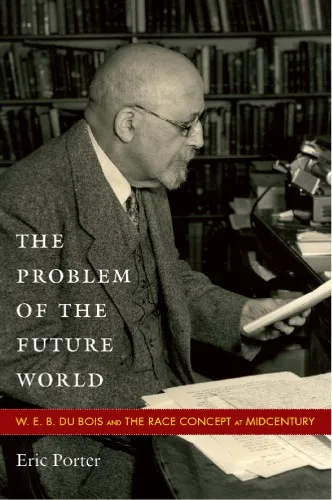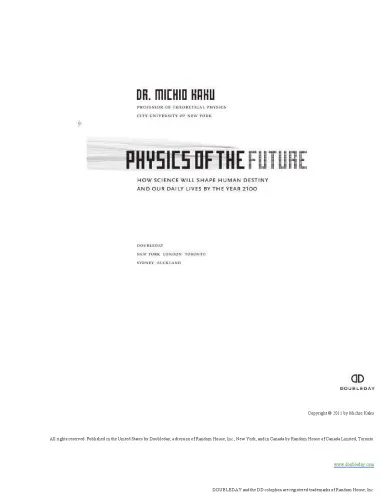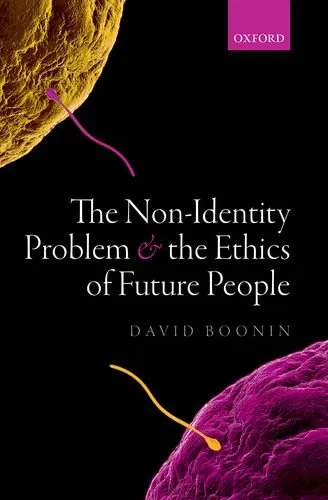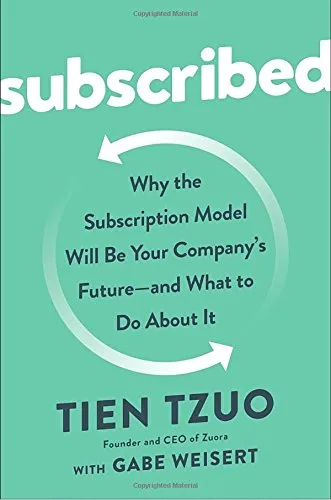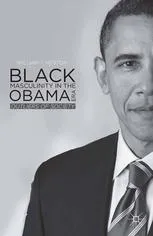The Problem of the Future World: W. E. B. Du Bois and the Race Concept at Midcentury
4.5
Reviews from our users

You Can Ask your questions from this book's AI after Login
Each download or ask from book AI costs 2 points. To earn more free points, please visit the Points Guide Page and complete some valuable actions.Related Refrences:
Introduction to 'The Problem of the Future World: W. E. B. Du Bois and the Race Concept at Midcentury'
"The Problem of the Future World: W. E. B. Du Bois and the Race Concept at Midcentury" delves into the influential and thought-provoking work of W. E. B. Du Bois during a transformative era in global history. By focusing on Du Bois’s intellectual and political contributions in the middle decades of the 20th century, this book explores his nuanced understanding of race, a concept that remained central to his scholarship and activism throughout his life. This deeply researched text sheds light on Du Bois’s evolving approach to the intersections of race, politics, colonialism, and global crises, offering critical insights relevant to contemporary discussions of racial justice and equality.
Set against the backdrop of midcentury geopolitical change, including decolonization efforts, the rise of the civil rights movement, and the intensification of Cold War tensions, the book examines the ways in which Du Bois grappled with the "problem of the future world." His reflections on the role of race in shaping societies, both historically and in the imagined future, serve as a call for collective action, deeper understanding, and tangible progress. Through his writings, speeches, and activist work during this era, Du Bois contributed to an intellectual framework that continues to resonate today.
This comprehensive study offers readers a unique opportunity to critically engage with key debates surrounding race, power, and justice in Du Bois’s midcentury work, while connecting these ideas to broader global challenges. Below, let us explore the key aspects of the book in greater detail.
Detailed Summary
The book examines W. E. B. Du Bois’s response to changing global dynamics between the 1930s and 1960s, a period marked by major upheavals ranging from World War II to the rise of movements demanding independence and equality around the world. It situates Du Bois as not only a pivotal figure in African-American history but also as a transnational thinker who critically interrogated the meaning and implications of race in a rapidly shifting global order.
Through his essays, books, speeches, and advocacy work, Du Bois reframed race as a global phenomenon rather than a local or national issue. His reflections on colonialism, capitalism, socialism, and their impacts on racial hierarchies allowed him to engage directly with the pressing concerns of his time. In doing so, Du Bois articulated a vision of the future where race would no longer define human potential or social harmony.
This work thoroughly explores several key aspects of Du Bois’s thought during this era, including his calls for Pan-African unity, critiques of Western imperialism, and engagement with socialism as a solution to systemic inequality. It highlights how Du Bois’s intellectual development paralleled and intersected with broader political struggles, making his ideas and strategies remarkably prescriptive for addressing the racial and economic crises of both his time and ours.
Key Takeaways
- W. E. B. Du Bois redefined the concept of race as a global framework, emphasizing its relationship to colonialism, capitalism, and imperialism.
- The book demonstrates how Du Bois engaged with socialism, decolonization, and Pan-Africanism as strategies for overcoming systemic racial oppression.
- Du Bois’s midcentury writings reflect his concern for the "future world," where humanity would need to confront deep interconnections between race, class, and geopolitics.
- Through his intellectual work, Du Bois encouraged collective and systemic solutions, rather than individual approaches, to dismantle racial hierarchies.
Famous Quotes from the Book
"The future belongs to those who prepare for it today."
"Race is not merely a social construct, but a historical narrative that dictates access to power."
Why This Book Matters
W. E. B. Du Bois’s insights continue to resonate in today’s sociopolitical landscape, where race remains a critical factor in shaping global inequalities and social hierarchies. By examining Du Bois’s responses to midcentury events, the book provides a roadmap for understanding how race operates within larger systems of power and influence. Moreover, the text invites readers to consider how historical frameworks of race continue to impact contemporary social and political issues.
This book is essential reading for those interested in African-American history, critical race theory, political activism, and global struggles for justice. It emphasizes the need for collective action and systemic change, principles that are as urgent today as they were in Du Bois’s lifetime. Through this careful study of Du Bois’s midcentury thought, readers are challenged to rethink their own understanding of race, history, and the future we seek to create.
Free Direct Download
You Can Download this book after Login
Accessing books through legal platforms and public libraries not only supports the rights of authors and publishers but also contributes to the sustainability of reading culture. Before downloading, please take a moment to consider these options.
Find this book on other platforms:
WorldCat helps you find books in libraries worldwide.
See ratings, reviews, and discussions on Goodreads.
Find and buy rare or used books on AbeBooks.
1365
بازدید4.5
امتیاز0
نظر98%
رضایتReviews:
4.5
Based on 0 users review
Questions & Answers
Ask questions about this book or help others by answering
No questions yet. Be the first to ask!
